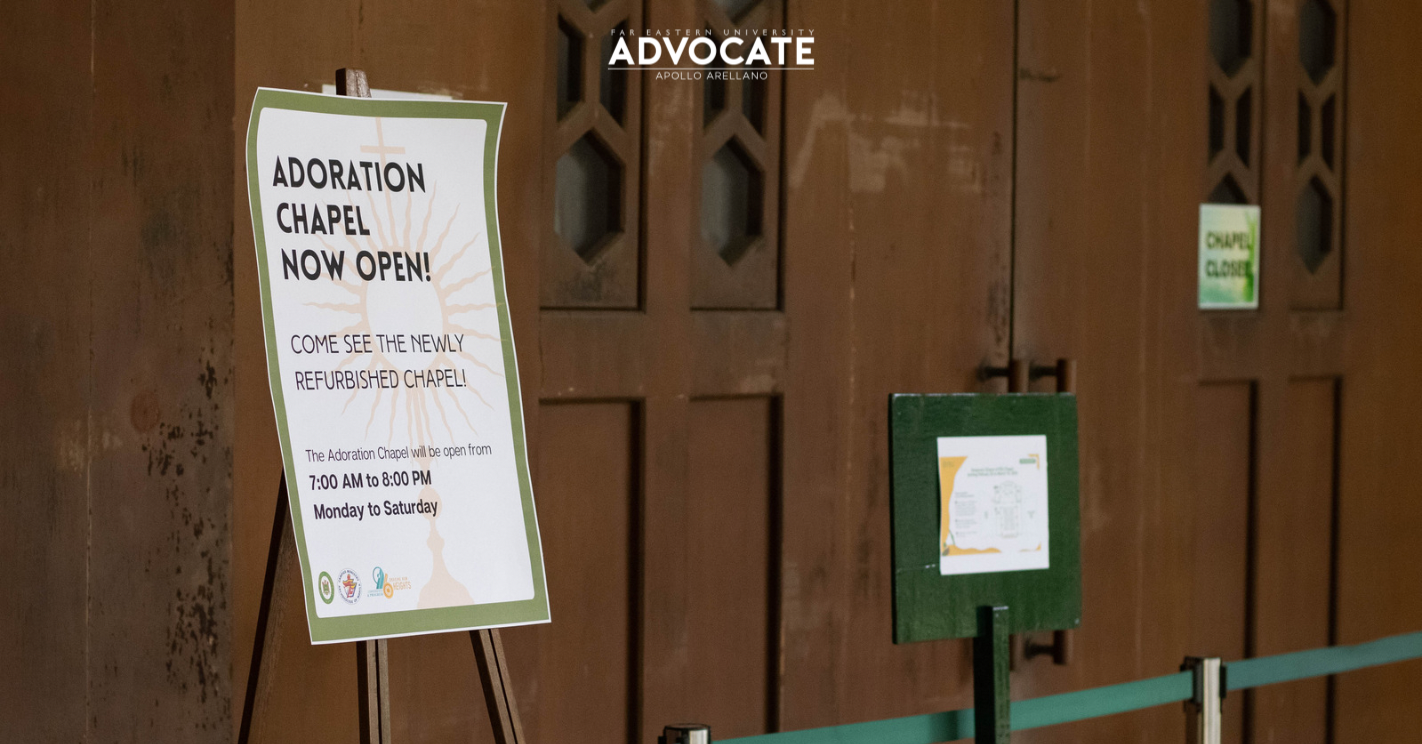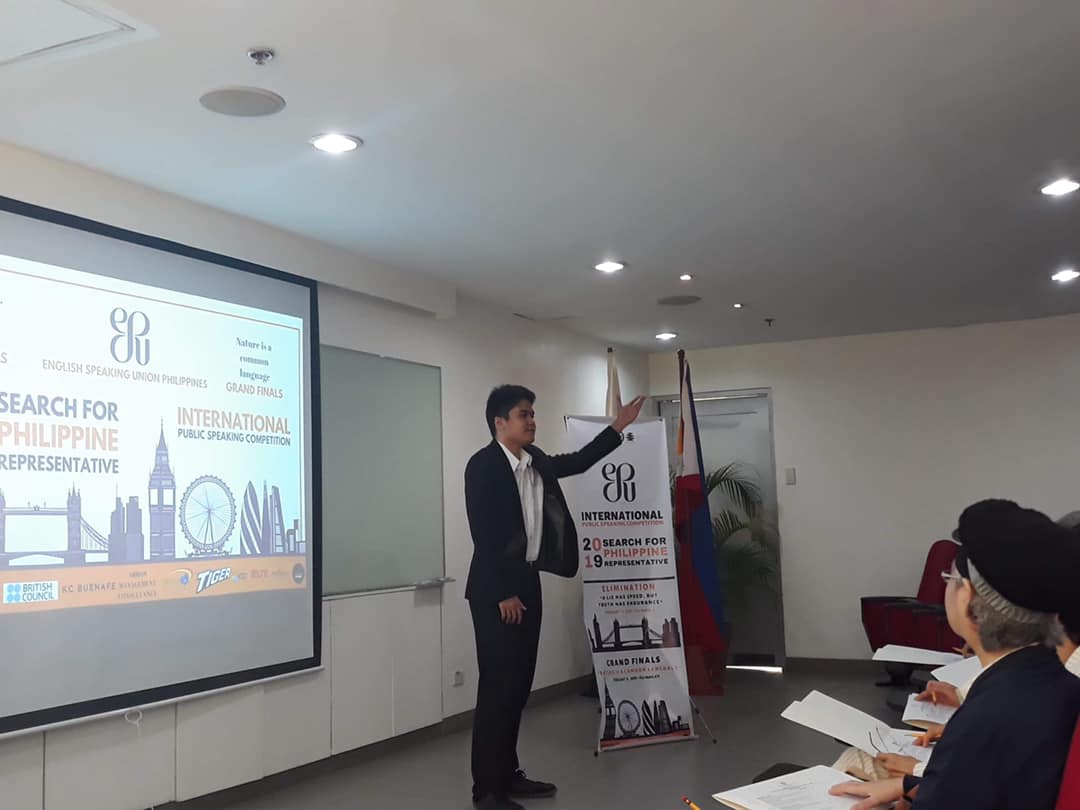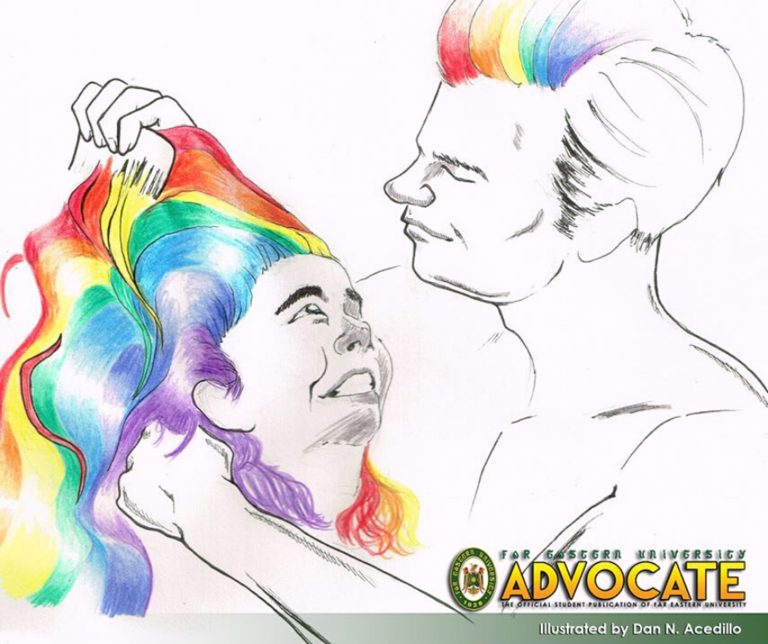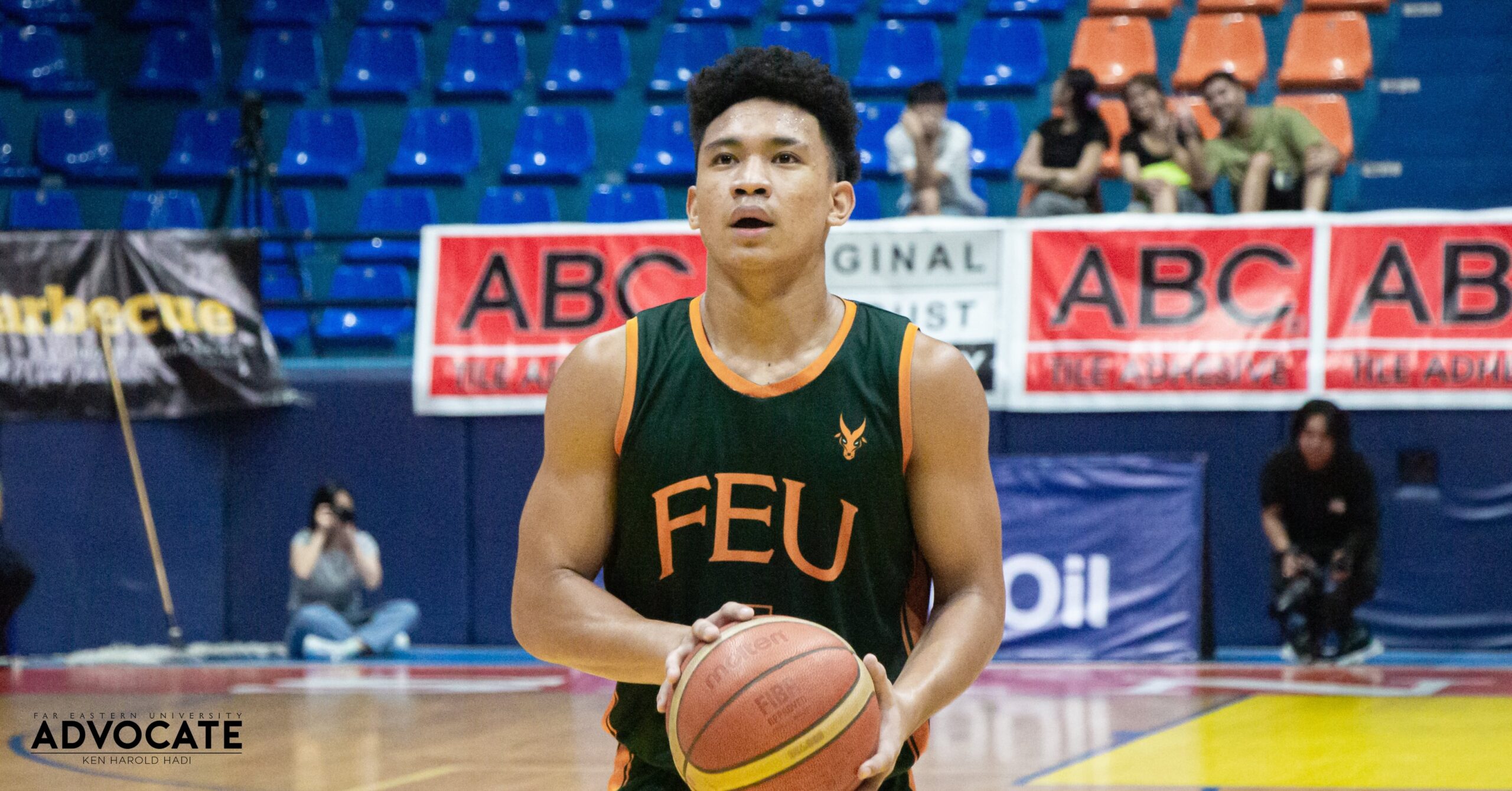
FEU unveils Sports HOF Room, launches Volleyball Diaries
- September 24, 2021 11:23
FEU Advocate
August 25, 2021 08:24
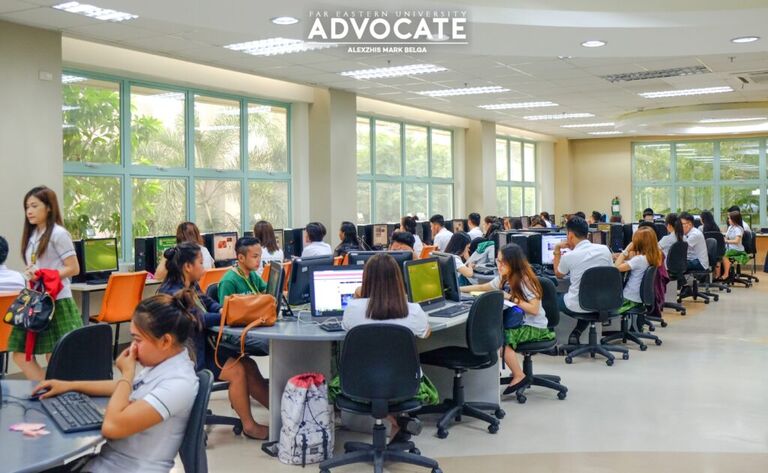
It is an unspoken reality as old as time: job hunting is a contest where education, skills, and credentials determine the victors. At a time when accomplishments are prized, the post-degree Teacher Certificate Program (TCP) offered by the Far Eastern University-Institute of Education (FEU-IE) for non-education majors may be just what one needs to widen their field of opportunities.
Qualifying non-education undergraduate degree holders for the Licensure Examination for Teachers (LET)-- so long as they earn prescribed units in professional education-- is an initiative taken by the Republic Act (RA) no. 7836 or the Philippine Teachers Professionalization Act of 1994, Section 15 in recognition of the role educators play in nation-building.
Owing to a major shift in the Philippine basic education as RA no. 10533 (Enhanced Basic Education Act of 2013) was implemented, the demand for teachers of specialized subjects in senior high school swelled. The integration of foundational courses in college into different tracks of the grades 11 and 12 curricula presented a chance for industry practitioners and specialists to penetrate the teaching profession.
The FEU TCP Umbrella
Granted permission by the Commission on Higher Education (CHED) to offer 18 units of professional education in 1997, the FEU-IE first launched its TCP track in 2002.
With the condition and well-being of students at its foreground of concerns, the FEU-IE offers this one-semester, 18-unit program to undergraduates of any course in understanding that students are likely preparing for the board exams or working, aside from attending classes.
Six professional education courses-- namely, The Teaching Profession, Principles of Teaching, Child and Adolescent Development, Assessment of Learning, Curriculum Development, and Education Technology with three units each-- are taught synchronously on Saturdays. Tasks worth 1.5 hours per course are then provided for the students to work on from Mondays to Fridays.
While generally focused on the pedagogical principles, these courses can be divided into two: foundation courses and pedagogical content knowledge (PCK) courses. Classified into the former, The Teaching Profession and Child and Adolescent Development subjects emphasize “the theories of how you will teach, what are the philosophies of teaching and learning, [and] what are the bases-- legal, moral, social bases-- of teaching”, said IE Undergraduate Studies’ Department Chair Joseph Jintalan.
Meanwhile, Principles of Teaching, Assessment of Learning, Curriculum Development, and Educational technology that comprises the PCK, highlights the how-to of instructing such as the arts of questioning and establishing goals, assessment tools, topic transition in the curriculum, and learning tool design respectively.
“The manner of how these courses are being taught in the program is… there are reading materials that are given to students so that they’ll explore the concepts and principles in teaching,” Jintalan shared. Lecture-discussions, situational and problem analysis, LET review, mock tests, and application of activities are also conducted to further their learning.
“How to make a lesson plan, how to make an instructional module, how to make assessment rules, [and] how to demonstrate teaching-- kasama ‘yun sa activities natin sa TCP (these are included in our activities in TCP),” he added.
Aside from completing the required 18 units to take the LET, TCP students may choose to take a second semester of optional subjects to build their experiential learning. It is composed of two courses worth six units each, where students are immersed into the actual classroom to facilitate with supervision from mentors.
Teaching Within and Beyond the Academe
Undeniably, the core of TCP are the principles, theories, and strategies of teaching that act as vehicles through which reconstruction of expert knowledge can be presented in a way students would understand.
Jintalan told FEU Advocate that there is no question on industry practitioners’ content and skill expertise. However, uncertainty lies in their ability to teach “kasi iba ‘yung content expertise sa teaching expertise. Pwedeng marunong ako sa area na ‘to, pero questionable kung kaya ko ba ito ituro sa ibang tao (Because content expertise is different from teaching expertise. I may be knowledgeable in this area, but my ability to teach this to other people is questionable)”.
As a graduate of Bachelor of Science in Nursing at the University, Abel Alvarez Jr. agrees that taking the TCP is a “necessary” step in building a foundation on which aspiring educators can acquire the knowledge, skills, and attitude conducive to teaching.
In fulfilment of his childhood dream to become a professional teacher, Alvarez Jr. applied for the program five years after earning his bachelor’s degree.
“It was a joyful and new learning experience for me having been learning different pedagogical theories, concepts, and practices,” he expressed, adding that it helps one to “value and embrace the art and science of teaching and learning in various contexts which, I believe, will be a great gateway for more personal and professional opportunities.”
Even so, taking the TCP presents its own set of challenges. Learning about one’s specialization at its most basic and core concepts in the context of someday teaching it to students, and the matter of continuing education even after acquiring a professional teacher’s license are some that Alvarez Jr. faced. Currently serving as a community extensionist, National Service and Training Program (NSTP) facilitator, and FEU Learning Journey (FLJ) mentor in the University, the nurse-turned-educator encourages engagement in “lifelong, lifewide, and life-deep learning.”
But the teaching skills that TCP affords its completers are not only limited in the realm of the academe. Jintalan mentions the existence of teaching and training units in institutions such as the Bangko Sentral ng Pilipinas, Maynilad, and Accenture where one’s content and instructional proficiency is wanted.
“Kung ikaw ay expert na sa content and skills ng specialization mo (If you are already an expert in the content and skills of your specialization), you can apply for a post in [these companies] that would require you to facilitate, or instruct, or teach other members of that industry of the content and skills that you do,” he stated, and furthered that one can also become an assessment writer, content reviewer, and a consultant in the context of education.
FEU’s TCP Performance in the LET
Since launching in 2002, the IE’s TCP has since seen a relative increase in applicants, not only due to the demand for facilitators of learning but also because of the impeccable passing rate of its completers in the LET.
In an online conference conducted by the IE on the 18-unit program last July 29, Jintalan admitted that the overall passing rate of FEU TCP completers is short of a hundred, but only because FEU undergraduates who took their TCP at other institutions are counted by the Professional Regulation Commission (PRC) into the University’s tally. Otherwise, FEU’s LET passers-- those who completed their undergraduate degrees and took TCP in the University-- boast 100% passing rate.
Jintalan accords this achievement to the University’s efforts in providing quality education. “The actual design of the TCP instruction-- the activities, the readings, the exposure to [teaching] principles, the exposure to these test questions-- these are contributing to the passing rate. At the same time, we have a good lineup of teachers in TCP,” he explained.
In addition to this, the 18 units on professional education courses truly make a world of difference in besting the LET as the ideas and theories are integrated into the very essence of the questions.
“Without TCP, it is impossible for me to decipher the professional education questions considering that you can also encounter these concepts from all parts of the board examination,” Alvarez remarked.
Indeed, education can easily be overlooked as a phase of life’s journey; a hurdle that can be left behind - but the truth cannot be more contrary.
While it may seem that basic education is just another insignificant experience an individual must go through on the way to adulthood, much of one’s future actually depends on it. As different strands of senior high school emerge, both students and educators must rise to the occasion in ensuring that most is made out of their roles.
It does not stop there. Education transcends the stages of schooling as it continues on in the workplace, making the industry of instruction an ever bustling field that will always be needed.
- Angelic Mizpah Chaste C. Bulanhagui
References:
- Philippine Commission on Women. Republic Act 7836: Philippine Teachers Professionalization Act of 1994. https://pcw.gov.ph/republic-act-7836-philippine-teachers-professionalization-act-of-1994/
- Official Gazette. (2013, May 15). Republic Act No. 10533. https://www.officialgazette.gov.ph/2013/05/15/republic-act-no-10533/


